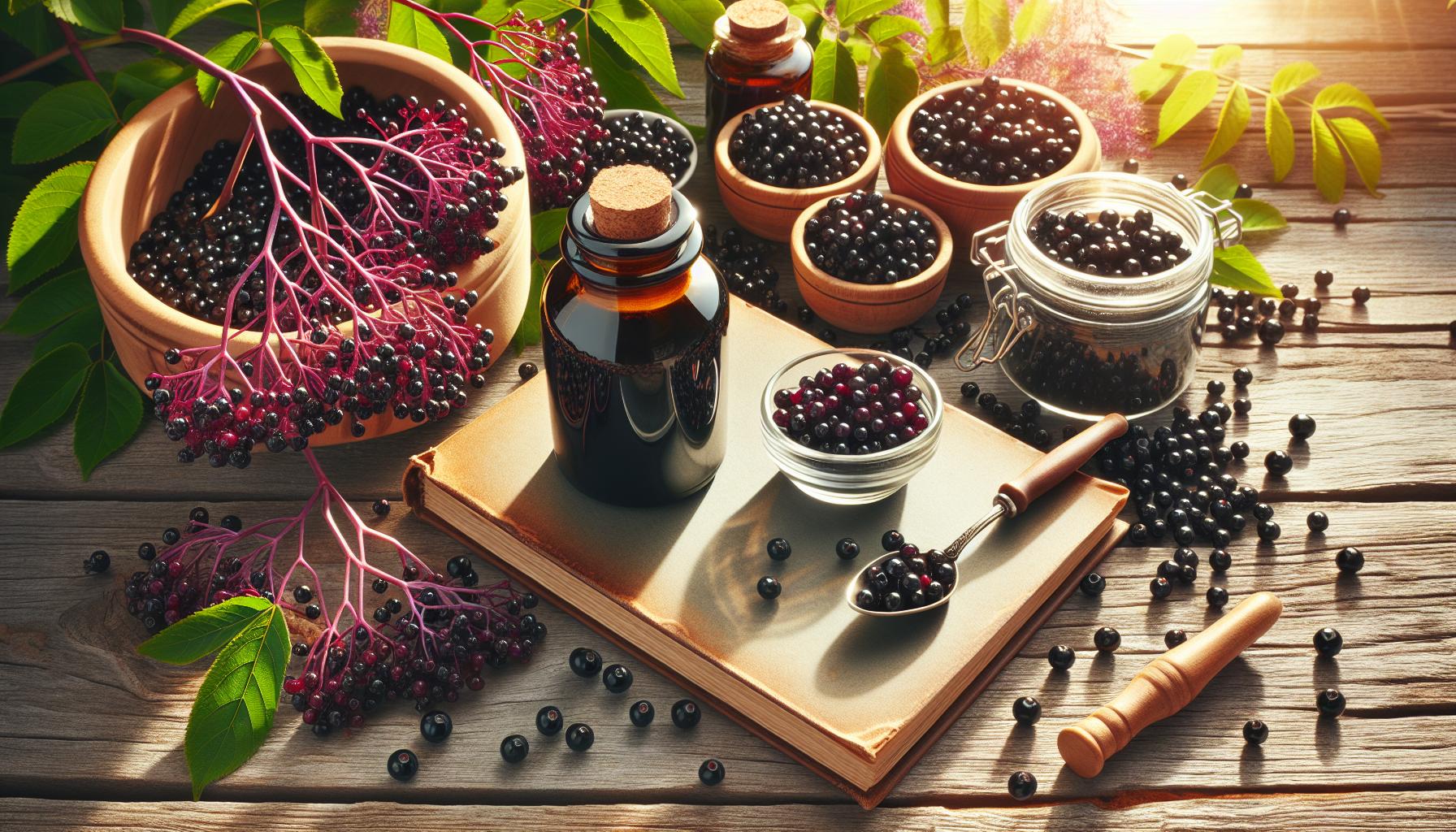
Are there negative side effects of elderberry?
The common side effects of taking raw elderberry plant products, such as fruit, flower, leaves, bark, or root include: Stomach problems. Nausea and vomiting. Diarrhea and constipation.
Introduction
You might have heard whispers in wellness circles about the magic of elderberry. It’s being touted for its health-boosting properties and immunity aid, sparking interest and curiosity. So, what is in elderberry that has the health world stirred up? The short answer is that elderberries are packed with essential nutrients and potent antioxidants. They boast compounds like phenolic acids, flavonols, and anthocyanins, making them the secret weapon in your natural healthcare arsenal. As we delve further into this article, we’ll unpack the unique composition of elderberries, their potential health benefits, and why you should consider incorporating them into your routine. Stay with us as we explore these berries’ hidden treasures and answer some of your pressing questions.
Elderberries Unearthed
Before we jump into what’s inside these tiny, miraculous fruits, let’s take a moment to understand them a little better. Elderberry refers to several different varieties of the Sambucus tree, a flowering plant belonging to the Adoxaceae family. The most commonly used species is the Sambucus nigra, or the European elderberry.
Elderberry Composition
Elderberries are tiny powerhouses of nutrition, rich in several vital compounds. They are brimming with beneficial antioxidants like anthocyanins, flavonols, and phenolic acids, all renowned for their health-protecting effects.
Nutrient-Rich Nectar
A nutritional breakdown of elderberries reveals high levels of vitamins, minerals, and dietary fiber. The vitamin C content in these berries is truly impressive—a cup of fresh elderberries can provide as much as 60% of the daily recommended intake. They are also a good source of vitamin A, iron, and potassium.
Not Just Berries
While the elderberries themselves are a treasure trove of nutrients, let’s not overlook the other parts of the elder plant. Elderflowers, for instance, are also edible and have their own set of health benefits.
Curative Crafting of Elderberries
While these berries are usually consumed in the form of syrups, teas, and supplements, it’s important to note that raw elderberries, as well as the leaves, seeds, and bark of the plant, can be toxic. They contain a type of cyanide called cyanogenic glycoside, which can cause nausea, vomiting, and even severe, life-threatening illness. Proper cooking or processing is necessary to make these berries safe for consumption.
Elderberry Extract – A Wellness Jewel
Elderberry extracts, made by removing the skin and seeds and cooking down the rest of the fruit, are a popular choice among wellness enthusiasts. These extracts carry all the health benefits of elderberries in a highly concentrated, user-friendly format.
Conclusion
In summary, elderberries are indeed a gift from nature, loaded with essential nutrients, antioxidants, vitamins, and minerals, ready to support our health. However, like any other natural ingredient, they should be used responsibly and wisely to reap their most profound benefits.
Frequently Asked Questions
1. Can elderberries boost my immune system?
Yes, elderberries are known for their immune-boosting properties thanks to their high vitamin C content and potent antioxidants.
2. Is it safe to eat raw elderberries?
No, raw elderberries can be toxic. Always make sure they are cooked or processed before consumption.
3. Can I use elderberry to treat the common cold or flu?
Many people swear by elderberry’s ability to shorten the duration and severity of cold and flu symptoms. However, it’s always best to consult a healthcare professional.
4. What are other health benefits of elderberries?
In addition to boosting immunity, elderberries may improve heart health, support digestion, and promote healthy skin.
5. How can I incorporate elderberries into my diet?
Elderberries can be consumed in many forms like syrups, teas, gummies, and supplements. Just make sure they are properly cooked or processed to avoid toxicity.


